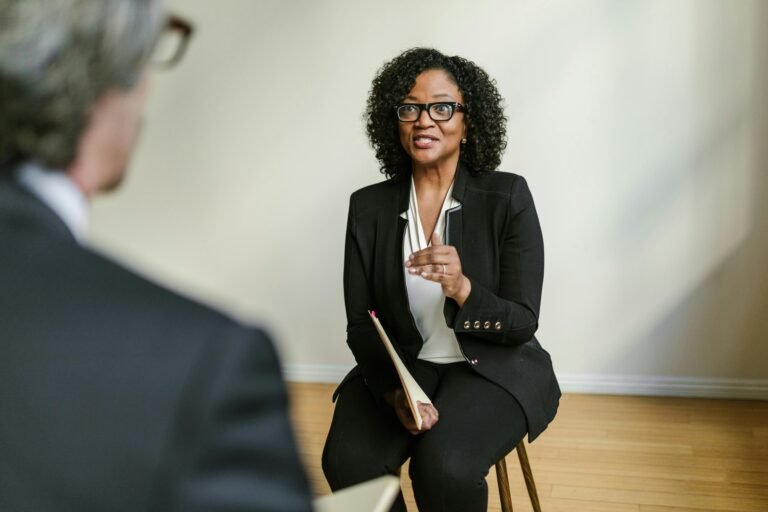Excited about your first summer camp counselor interview but feeling a little nervous? Don’t worry, you’re not alone! Getting that interview is a big step, and while it might feel intimidating—especially if you don’t have direct experience—you’re already on the right track. You don’t need to be a summer camp veteran to nail this interview. You just need to be prepared, show your enthusiasm, and highlight the skills that make you a great fit.
Whether you’re a high school or college student, future educator, or someone who simply enjoys working with kids, here’s how you can prepare to make a strong impression in your camp counselor interview—even if this is your first time applying for a camp job.
How to Prepare for a Camp Counselor Interview When You’re New to the Role
1: Understand the Role of a Camp Counselor
Before you even step into the interview, it’s important to have a solid understanding of what the job involves. Summer camp counselors don’t just run games; they’re responsible for a variety of duties, including:
- Keeping kids safe and engaged
- Leading activities like arts, crafts, and outdoor games
- Encouraging teamwork and helping kids build friendships
- Managing behavior and resolving conflicts
- Supporting fellow counselors and camp leaders
Knowing what you’ll be asked to do will help you speak more confidently about your abilities and how they align with the role—even if you haven’t worked at a camp before.
2: Reflect on Your Transferable Skills
Even if you don’t have specific camp experience, you’ve likely gained valuable skills in other settings. Think about jobs, volunteer roles, or school activities where you’ve demonstrated responsibility, leadership, or worked with kids. Some examples might include:
- Volunteering with kids in any capacity
- Babysitting or tutoring
- Customer service or retail roles
- Coaching a youth sports team
- Participating in leadership roles at school or in clubs
Take a moment to reflect on these experiences and how they’ve helped you develop the skills that are relevant to being a camp counselor, like teamwork, problem-solving, and communication. You probably have plenty of stories that show you’re ready to take on the role, even if they don’t come from a camp setting.
3: Do Your Research
Every camp has its own culture, so take some time to research the camp you’re applying to. Check out their website, social media, or any materials they’ve provided. Try to learn about:
- Their mission and values
- The age group they serve
- Types of activities or programs they offer
- The overall camp environment
Knowing this information will help you understand what they’re looking for in a counselor and allow you to tailor your responses in the interview. It’s also a great way to show your interest in their specific camp, rather than just any camp job.
4: Practice Answering Common Interview Questions
While each interview will vary, there are a few questions you’re likely to hear during a camp counselor interview. Some common ones include:
- “Why do you want to work at this camp?”
- “How would you handle a camper who isn’t participating in activities?”
- “Tell us about a time you worked with children.”
- “How do you handle stressful situations or conflict?”
Practice answering these questions out loud or record yourself answering them so you can think through your responses. You don’t need to memorize answers, but getting comfortable with the questions will help you feel more confident during the interview. You can also come up with a few examples from your past experiences to share. This makes your answers feel real and grounded in actual situations.
5: Dress Business Casual
While camp interviews aren’t generally as formal as a corporate job interview, it’s still important to present yourself in a way that shows you’re taking the opportunity seriously. Dressing in business casual attire strikes the right balance—it shows you’re serious about the job but still in tune with most camp’s laid-back environment.
Here are some suggestions for attire:
- A collared shirt (button-down, polo, or blouse)
- Khakis, chinos, or dress pants (or an appropriate skirt)
- Clean, closed-toe shoes (avoid sneakers, sandals, or flip-flops)
- A light sweater or jacket if you feel it will make you look more polished
Looking neat and put-together communicates respect for the interview process, while still showing you understand the relaxed, fun nature of the camp environment. Remember that it’s better to be over-dressed than under-dressed.
6: Have Questions Ready
The interview is a two-way street, and asking questions shows that you’re engaged and genuinely interested in the camp. Here are a few questions you can ask:
- “What does a typical day look like for a first-time counselor?”
- “What support do you provide to counselors who are new to working with children?”
- “How do you ensure that counselors are having a positive impact on the kids?”
These questions will help you learn more about the camp’s expectations and give you a better sense of whether it’s the right fit for you.
7: Be Honest and Authentic
When you’re new to the role, it’s okay to admit that you don’t have specific camp experience. What’s more important is your attitude and willingness to learn. Be honest about your experiences, but also show your enthusiasm for the role and your eagerness to grow. For example:
“I haven’t had the chance to work at a summer camp before, but I have experience working with children in other settings, like tutoring and volunteering. I’m really excited to bring my skills to a camp environment and to learn how to handle new challenges.”
Being genuine will go a long way in helping the interviewer see that you’re someone they’d want to work with.
8: Send a Thoughtful Thank-You Note
Once the interview is over, don’t forget to send a thank-you note. It’s a small gesture that shows appreciation and reinforces your interest in the position. Keep it short and sincere:
Subject: Thank You – [Your Name]
Dear [Interviewer’s Name],
Thank you so much for the opportunity to interview for the summer camp counselor position at [Camp Name]. I really enjoyed speaking with you about the camp and learning more about the wonderful experiences you provide for the kids. I’m excited about the possibility of joining the team and bringing my passion for working with children to the camp this summer.
I look forward to the opportunity to contribute to [Camp Name] and to work alongside other counselors to create a positive, fun experience for the campers. Thank you again for your time and consideration.
Best regards,
[Your Name]
[Your Contact Information]
This thank-you note not only expresses gratitude, but also reminds the interviewer why you’re excited about the role and reinforces your commitment to making a positive impact. If you were interviewed by a committee, be sure to ask the interviewer to thank them for you, or ask for their email addresses so that you can thank them yourself.
In Closing
Preparing for your first camp counselor interview might feel like a big task, but it’s also a chance to show your passion for working with kids and your eagerness to be part of a team. You don’t need years of camp experience to be successful; what matters most is your attitude, your willingness to learn, and how well you fit with the camp’s culture.
Take the time to prepare, reflect on your experiences, and go into the interview feeling confident. If you do that, you’ll be well on your way to landing that summer camp counselor position!
Related Posts
Top 10 Interview Questions for Summer Camp Counselors and How to Answer Them
How to Write a Resume for a Camp Counselor with No Experience
How to Prepare for a Summer Camp Job Interview Using the STAR Method









